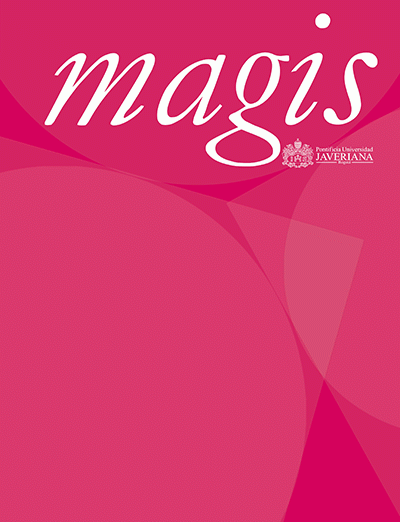Resumo
In this article, we analyze four of twelve forwardables, that is, email messages, received over a period of four months with the objective of comprehending the discourses about teachers and the teaching profession which pervade the teachers’ cultural space in Brazil. For the purpose of analyzing these forwardables, we combine the concept of cultural domain (Spradley, 1980) and the methodological principles of critical discourse analysis (Fairclough, 2010). Our analyses show another aspect of group identity besides that of professional activities, which is a sense of occupying a place of low social prestige.
A revista magis, Revista Internacional de Pesquisa em Educação by Pontificia Universidad Javeriana encontra-se registada sob a licencia Creative Commons Versão 4.0 Internacional. Portanto, esta obra pode se reproduzir, distribuir e comunicar publicamente em formato digital, sempre que dado o crédito apropriado para os autores e a Pontificia Universidad Javeriana. Permite-se citar, adaptar, remixar, transformar, autoarquivar, republicar e criar a partir do material, para qualquer fim, mesmo que comercial, sempre que indicado apropriadamente o nome do criador, provido um link para a obra original e indicado se mudanças foram feitas. A Pontificia Universidad Javeriana não retém os direitos sobre as obras publicadas e os conteúdos são responsabilidade exclusiva dos autores, os quais conservam seus direitos morais, intelectuais, de privacidade e publicidade.
O aval sobre a intervenção da obra (revisão, correção, edição, tradução, formatação) e a subsequente difusão disponibiliza-se através de licença de uso e não através de transmissão de direitos, o que representa que a revista e a Pontificia Universidad Javeriana são isentas de qualquer responsabilidade que puder se derivar de uma prática ética pobre por parte dos autores. Em consequência da proteção fornecida pela licença de uso, a revista não fica na obrigação de publicar retratações ou alterar informações já publicadas, a não ser que a errata seja decorrente do processo de gestão editorial. A publicação de conteúdos nesta revista não representa royalties para os contribuintes.
Creative Commons Attribution 4.0 International Public License


